How can a loving God allow sin, despair and I wrote last week about how the trauma of a cancer diagnosis affects not only the person with cancer, but also, all with whom they are associated. As part of the ensuing conversation, one friend asked: “how can a loving God allow such a thing?” Of course, one can extrapolate that question to how can a loving God allow the tragedy of Syria to continue to unfold, or the drought and famine in southern Africa or pick any number of disasters. Broadly stated, how can a loving and omnipotent God allow sin, despair and destruction to abound and affect so many, so dramatically.
I don’t know “the answer” but I can share with you what I believe. I don’t believe that God routinely plays favorites and intervenes directly in the course of history or in the course of any one person’s life. I believe that history and disease and natural or man-made disasters unfold of their own accord. Where God can be found is at the personal level. I believe that God is present during all of these events and is whispering his love and guidance to everyone affected. For example, I believe that right this moment, God is telling the Syrian president Bashar al-Assad that maybe there is another way to approach this struggle for power. And God doesn’t stop there, he is providing the same message to all who are party to the Syrian disaster: the Russians, ISIS, the Kurds, America and all others fighting for land, resources and power. So, if God is doing all this whispering and guiding, why is there no change? Is God impotent instead of omnipotent? What I think is that God takes seriously our freedom of choice and that he will not impose his will on us. We must be willing to hear his guidance and to act on it. It is through us and our actions that the kingdom of God will prevail on earth. After all, what worth is freedom of choice if that freedom can be overridden at any moment? It’s like saying to your teenager, you can have the keys to the car, just as long as you do what I say. There are no conditions to God’s love or to our freedom of choice. God loves us so much that he allows us to fail. But he never abandons us and especially not when we do fail. Where I struggle in this question of God’s benevolence is on the concept of miracles. On the one hand, I say that God doesn’t play favorites and intervene in human activities, yet the bible is full of stories about God performing miracles to affect the outcome of history and of individual lives. How can God be both hands off when it comes to freedom of choice but also hands on when it comes to certain interventions through miracles? Maybe a miracle is just God’s way of saying “Pay Attention”. Maybe miracles are God’s message telling us that he is calling us; that he is speaking to and through each of us and that we need to wake up and listen. Maybe we are so stubborn and so wrapped up in ourselves that we don’t hear the call of God and miracles are God’s big, red, pulsing neon sign saying, “this way home.” Those are the “big” miracles. But there are thousands upon thousands of “little” miracles we experience each and every day. Take for example the miracle of child birth, or how a seed becomes a luscious tomato plant, or the sense of holiness when standing in a redwood forest surrounded by giant trees that are hundreds of years old. I had an epiphany once while sailing that I wrote about before but want to share again. We were coming back from a Wednesday night regatta one summer evening. The wind was light and warm. The full moon was rising from the horizon of Lake Michigan just as the sun was setting over the city. As I stood in the back of the boat to absorb it all, these words came to me: “This and thee are the glory of God.” I don’t understand miracles; how they happen and how one person may be healed and another left unhealed. But I do understand this: I am God’s beloved. We are each God’s beloved. All the world and each of us are miracles. And as miracles, we each manifest the glory of God. What we do with that miracle is entirely up to us.
0 Comments
"Something may come and turn our life around but eventually, we will once again find the sun" I have several friends and family members who are dealing with varying stages of a cancer diagnosis. Some feel betrayed. After spending a lifetime of right eating, exercise and healthy living, the cancer still prevailed. Or in their minds, their body failed them, or life failed them, or God failed them.
Being a cancer victim, or being related to a cancer victim is a roller-coaster ride of joy and sadness, of faith and doubt, and ultimately of understanding right priorities. Somehow, the 24/7 of Trump news is no longer news worthy. What does matter is holding on tight to those you love; of sending love thoughts to your loved one as she lay sleeping. What matters is sitting quietly in the back yard, just you and your partner soaking in the sun, the warm wind, the scent of spring flowers and enjoying the presence of each other on this earth in this moment. It is a humbling experience to tell others about this disease that has affected one’s entire family. Tears come easy and frequently. But, so do prayers. I have one family member who has literally hundreds of people praying for her. Her friends, the friends of her spouse, the friends of her children, the people she works with and the networks of friends they know; everyone is offering up prayers for healing and strength; asking God to be with her and her family during this trying time. The prayers are not to remind God of what he should do. I think God knows what to do without us telling him. I believe the prayers are intended to simply remind the one in such pain that they are loved. Over and over again, each prayer is a whisper to the universe that this person is loved by those close to them and by those close to those who are close to them. They are loved by all they touch in life. The Taoists teach that where there is sadness, there is also joy; that both emotions are the yin and the yang of each other. Of course, there is no joy in cancer. But there is joy in understanding that life is impermanent and that to enjoy it, we must appreciate life’s many joyful small moments. My wife Jennie is starting a batch of sun flowers from seeds planted in soil in an old green plastic ice cube tray that now sits on our kitchen counter next to the window. The little sunflower stalks are just two inches tall, but they know how to find the sun – even at this early stage. When the sun rises, all twelve of the tiny flowers strain to the east to catch its rays. I will turn the tray around so the plants will face west, but slowly they all turn again to the east, tracking the energy of the sunlight. Perhaps these small plants are a metaphor for life. Something may come and turn our life around but eventually, we will once again find the sun. My friend observed that when talking with others about her cancer, she could quickly identify those who have suffered in some deep fashion and those who have not. Those who have suffered didn’t offer up platitudes. They didn’t pat her arm and tell her everything will turn out alright. They simply hugged her. They asked what she needed and how they could help her. Those who have traveled a journey of pain or sorrow know that what is most needed is a trusted companion; someone to lean on if required. For my friends and family facing this new life challenge, I have resolved what I am going to do. I am going to let them know they are not alone; that I will be there for them if they want my help. I will let them know they are loved through words and actions. And, I will help them find the sun once again in their life when they are ready to move past the pain. We say we are a Republic - but I fear we have become an Oligarchy: a government where a small group of people exercise control for corrupt and selfish reasons. Now I know what it must have been like to live in Rome at the time of the Coliseum games when gladiators and slaves were pitted against each other in a struggle to the death and the rulers in the stands would lift their thumbs up or down deciding who should live or die. Is it any different today as 24 million Americans are thrown into the arena and are forced to struggle and even to die for lack of health care? In my mind, I picture the president, House Speaker Paul Ryan, and 216 other Republican congressmen in unison giving a celebratory thumbs down, condemning millions to a life without affordable and reliable health care. What makes this even worse is the fact that these politicians heartlessly cut medical coverage for the poor and used the savings to give big tax cuts to the wealthy. And no small wonder here, since most of those in congress are millionaires. For a sobering exercise, just peruse through the list of congressional millionaires compiled by the Center for Responsive Politics. For me, it was a nauseating experience to see how the wealthy are legislating benefits for themselves while taking away vital services from the rest of us. If you’re wondering how the Wisconsin congressional delegation stacks up in the millionaire decision maker club, below is a chart. This information was extrapolated from data supplied by the Center for Responsive Politics.
As you can see from the chart, except for Rep. Duffy, it was primarily a group of Republican millionaires in the Wisconsin congressional delegation who voted thumbs down on ensuring health care benefits for those most in need. While viewing this chart, it is helpful to remember: all Wisconsin Republicans voted for the health care claw back and all Democrats were opposed. I have a hard time understanding how anyone can make this decision while sitting in such a position of wealth and privilege. Creating a political “win” seemed to be much more important than caring for those who are less well off. And perhaps even more important was creating the health care tax cuts, to set up another round of tax savings for the wealthy in the upcoming tax reform exercise recently promoted by the president. What is most disheartening about all of this is the level of dishonesty; the unwillingness of the Republican decision makers to own up to what it is they are doing to the American public. This was best stated by Washington Post columnists Jennifer Rubin who wrote: “House Republicans have been so fixated on passing anything that they now find it hard to defend their handiwork without resort to exaggeration, deflection and flat-out dishonesty” And so, we have the Republican millionaire dominated congress vote to take health care away from 24 million Americans; to defund Medicaid to the tune of $880 Billion dollars; and to use those “savings” to provide tax cuts to the wealthy. This is what America has come to be: a land where our actions don’t live up to our values.
We say we are a Republic, but I fear we have become an Oligarchy: a government where a small group of people exercise control for corrupt and selfish reasons. Let the games begin. "Tenderness is the love that comes close and becomes real" I read an article in the Milwaukee Journal Sentinel recently that perfectly reflects the problem with America today. The story was about how American Airlines registered more than a quarter million dollars in profits during the first three months of this year and wanted to spend some of the excess funds to provide raises for pilots and flight attendants who – according to the article – are paid below the industry standard. The problem, as I see it, isn’t with the company wanting to convert profits into pay raises for employees. The problem is with how Wall Street savaged American Airlines for doing so. Read this quote on the matter from a Wall Street analysts and perhaps you will see what I mean. “This is frustrating. Labor is being paid first … again. Shareholders get leftovers.”
I find it disheartening that Wall Street could not see this as a situation that would benefit both American Airlines and USA workers in general over the long term. Perhaps the best quote in the article came from John Cotton, a professor at Marquette University. Cotton said, “As far as Wall Street is concerned, if you could pay minimum wage to everybody on every job, that would be great because that would leave more money for stockholders.” There you have it. Real wages haven’t budged for most workers in 40 years according to one Pew Research Center report. And, while wages for employees have stagnated, corporate profits have soared as illustrated in a 2014 Harvard Business Review essay entitled Profits without Prosperity. I’m sure this isn’t a surprise for most. After all, many pundits pointed to these economic dynamics as a prime component that propelled Donald Trump into the White House. This isn’t about just pointing fingers, I’d like to offer some solutions as well. Pope Francis in a recent Ted Talk may have provided some direction for us. In his brief address, Pope Francis lays out three actions we can take to build a future that includes everyone. First, he encourages us to recognize that we are all connected; not only to each other but also to the planet. For example, a society can’t suppress wages for nearly two generations and expect to thrive. Or we can’t enact laws and policies that benefit the few and the wealthy and not experience a political backlash. Finally, we can’t ignore the buildup of carbon dioxide in the atmosphere and pretend that there are no consequences. From this connectedness naturally flows a sense of solidarity, the Pope explains. Solidarity means that we answer “yes” to the question: “am I my brother’s/sister’s keeper?” It requires us to focus more of our efforts on taking care of others and focus less of our energy on amassing personal wealth, possessions and power. Finally, the Pope calls us to a new revolution; a revolution of tenderness. Tenderness, says the Pope, “is the love that comes close and becomes real.” I wonder what would the world look like if we truly experienced a revolution of tenderness. I suspect we would not be arguing about whether the provision of health care is a basic need and a right for all. I also suspect we might be discussing how to welcome our neighbors with open arms and how we can prosper together, rather than building a wall to keep them out. I think we would finally recognize that the information and robotic economy of the future will require us to rethink how we support one another through wage subsidies, health care, child care, retirement benefits and the like. If a revolution of tenderness is where we want to be, then how do we get there? A revolution, like every other important endeavor, starts with a radical small step. Perhaps the radical small step is this: I will treat everyone I meet today with tenderness. And then, I will treat everyone I meet next week with tenderness. Finally, I will use tenderness as the filter for all that I think and do for myself and for others. I believe we could use a large dose of tenderness about now. Perhaps it’s time for a revolution. |
AuthorMichael Soika has been a community activist for more than 30 years working on issues of social and economic justice. His work for justice is anchored by his spiritual formation first as a Catholic and now as a Quaker. Archives
June 2018
Categories |
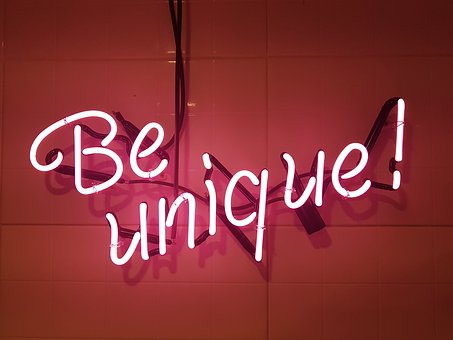

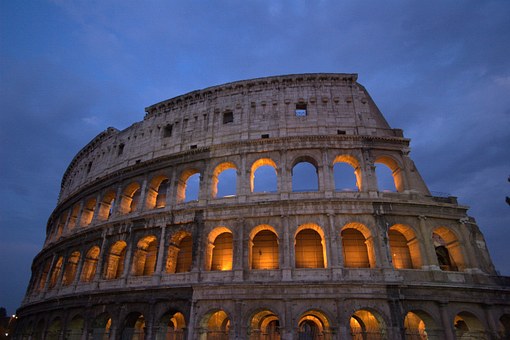
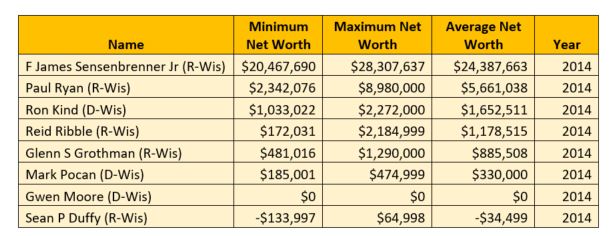
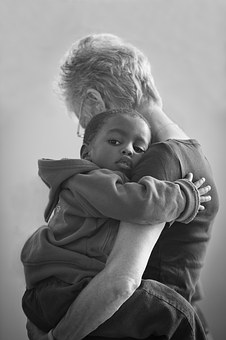
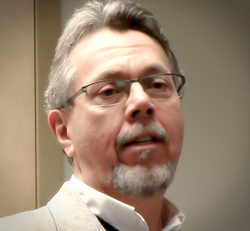
 RSS Feed
RSS Feed